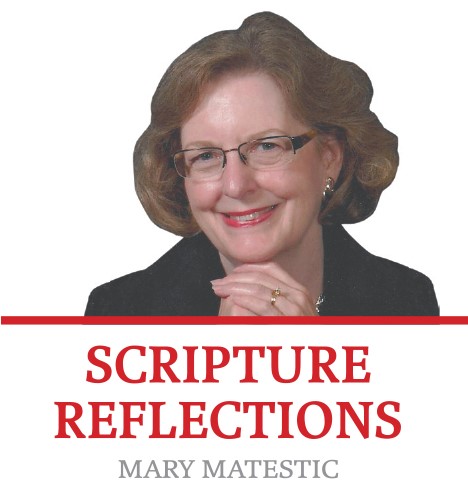Scripture Reflections, Aug. 27, 2023
August 27, 2023
21st Sunday in Ordinary Time
Isaiah 22:19-23
Psalm 138
Romans 11:33-36
Matthew 16:13-20
Cleaning out my overstuffed bookshelves, I ran across a small book called “Poverty of Spirit” by Johannes Baptist Metz (Paulist Press, 1998). Metz was a German priest and theologian who died in 2019, having greatly contributed to a theological understanding of Jesus as one who lived in solidarity with those who suffer. The discovery was providential because currently a group of women and I are studying Matthew’s Beatitudes. It’s all so lovely, really, as we scrutinize the layers in the Beatitudes, which only bring us closer to a soulful conviction, a conviction that strips away at our ego, our self-aggrandizement and pride, leaving us to cry out, “O God, I am totally dependent upon you!” Blessed are the poor in spirit, Matthew says, and no one else modeled that poverty of spirit more than Jesus.
Metz looks particularly at the choices that Jesus made in the Gospels. They were always choices of humility aligning himself with the human condition, except for sin. Looking at the life of Jesus through the passage from Philippians 2:5-11, where we read that Jesus, though he was in the form of God, did not regard equality with God as something to grasp, Metz points out that “Jesus held back nothing; he clung to nothing, and nothing served as a shield for him. Even his true origin did not shield him, for he did not cling to equality with God.” (p. 10)
So, when Jesus resisted the three temptations of Satan in the desert, he chose instead poverty of spirit. By saying “no” to Satan, Jesus was saying “yes” to humility. In saying “yes” to humility, he was saying “no” to power, possessions and prestige. Rather, Jesus descended into the abyss of our human existence, penetrating its darkest depths.
Jesus knew what people were saying about him. He heard the detractors call him both a hero and Beelzebub. He learned to transcend the distractions because his heart and soul were set like a fierce fire toward building the Kingdom of God. But just as anyone knowing they are soon to die, Jesus took aside his beloved followers to ask them, not only what they were hearing about him, but who they thought him to be. “Who do you say that I am?” he asks.
The question is critical to their faith, and it is critical to our own. I think each of us needs to ask the question: “Who is Jesus Christ in our own lives?” The question will predicate all our choices and direction. We are either “in” all the way, or we flounder trying to understand life and its complexities without the light who is Jesus to guide us. Peter comes forth with the divinely inspired insight, “You are the Messiah, Son of the living God.” That understanding would be confirmed later on the Mount of Transfiguration where the voice of God from heaven declared Jesus to be the Beloved Son.
Retreating to Caesarea Phillippi, a pagan hotspot where idols were carved into the rocks, Jesus knows full well the culture there. Still, from the rocks flow the source of the river that forms the Jordan where John’s Baptism took place. Here in the shadows of idolatry, Jesus reveals himself as Messiah to his own. In the heart of darkness, the revelation of light emerges. What does this say about the poverty of Jesus? He must relinquish his vocation. As his divinity is revealed, he must also surrender it and not grasp at it. He must pass on his vision. He must give to the simple fisherman the keys to the kingdom. Jesus will not cling. He must allow his beloved followers to wander about in the inexplicable paradox of a saving God.
Out of the living waters from this rocky terrain, Jesus has a vision of his Church.
The keys, the power to bind and to loose, are handed over. I wonder if Jesus felt the utter helplessness in the moment he is exposed. Facing the reality of death, gaping into the darkness of suffering, a place where he could not see his Father’s face, “He reached his destiny, stretched taut between a despising earth that had rejected him and a faceless heaven thundering God’s ‘no’ to sinful humankind. He became utterly poor.” (p. 13)
Poverty of spirit is not a kid’s game, but an intentional, mature ingredient to living in the Kingdom of God. “Blessed are the poor in spirit, for theirs is the Kingdom of Heaven.”
It is no wonder Paul cries out, “How inscrutable are his judgments and how unsearchable his ways.”

